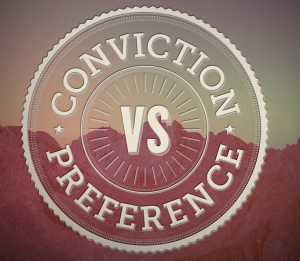You’ve heard the cliché “actions speak louder than words.” The New Testament book of James puts it another way when it says that faith without works is dead. People may say they believe something, but you don’t know if it’s a real belief until you see if, under pressure, it holds solid. A few days ago, I began an examination of the English Separatists who eventually became known as the Pilgrims when they settled in America. How solid were their beliefs? What indicators show the genuineness of their faith?
 Due to their belief that the Anglican church should not speak for everyone, and that they should be free to set up churches apart from the state, they were perceived as traitors to the nation. One simply cannot reject the church without rejecting the head of the church—the king or queen of the realm. Taking that stance put them in peril, so much so that many Separatists throughout England sought to leave the country for Holland, where they would not be punished for pursuing their beliefs.
Due to their belief that the Anglican church should not speak for everyone, and that they should be free to set up churches apart from the state, they were perceived as traitors to the nation. One simply cannot reject the church without rejecting the head of the church—the king or queen of the realm. Taking that stance put them in peril, so much so that many Separatists throughout England sought to leave the country for Holland, where they would not be punished for pursuing their beliefs.
The little group of Separatists that ultimately found their way to the New World tried twice to leave England. Twice they suffered for the attempt. They had to make arrangements in secret so the government wouldn’t know, since they didn’t have permission to emigrate. On the first attempt, the captain of the ship betrayed them to the government, which paid him for the betrayal. He was in it only for the money. Consequently, they ended up in prison for a time.
 Discouraging, right? Why try again? Yet they did. As the men were loading all their goods on the ship, suddenly soldiers appeared on the horizon. Somehow word had leaked about what they were doing. The captain of this ship, not wanting to experience the same fate as his erstwhile passengers, pulled up anchor and took off with the men; the women and children were still on the shore waiting their turn for boarding. Now they were left alone. The soldiers dragged them away, where they suffered in prison, this time without their husbands. Meanwhile, the men on the ship were in the deepest distress as they took off for Holland without their families. To add to the distress, they sailed straight into a terrible storm that almost sank the ship.
Discouraging, right? Why try again? Yet they did. As the men were loading all their goods on the ship, suddenly soldiers appeared on the horizon. Somehow word had leaked about what they were doing. The captain of this ship, not wanting to experience the same fate as his erstwhile passengers, pulled up anchor and took off with the men; the women and children were still on the shore waiting their turn for boarding. Now they were left alone. The soldiers dragged them away, where they suffered in prison, this time without their husbands. Meanwhile, the men on the ship were in the deepest distress as they took off for Holland without their families. To add to the distress, they sailed straight into a terrible storm that almost sank the ship.
Eventually, everyone arrived in Holland—men, women, and children—but the ordeal had been harrowing. One has to ask why they would go through such stress when all they would have had to do was outwardly submit to the authorities, put on a show of external obedience, and quietly gone their Separatist ways. Why subject themselves to this potential punishment when they could have lived in peace?
The reason they didn’t submit, of course, is that they wouldn’t have been at peace in their spirits. Their reading of Scripture convinced them of the rightness of their beliefs; they would have violated their consciences if they had disobeyed what they felt God was calling them to do.
 I like to explain it this way: for some people, their “beliefs” are no more than preferences; they lack the conviction to follow through on what they say they believe. A preference is not a conviction. A preference isn’t even a real belief. These Pilgrims showed integrity in their steadfastness through trial. They were the real deal.
I like to explain it this way: for some people, their “beliefs” are no more than preferences; they lack the conviction to follow through on what they say they believe. A preference is not a conviction. A preference isn’t even a real belief. These Pilgrims showed integrity in their steadfastness through trial. They were the real deal.
Just getting to Holland, however, did not signal the end of their trials. More hard times awaited them, more instances when they had to make decisions based on their heartfelt convictions. I’ll continue the Pilgrim story in upcoming posts.
